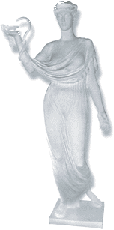

Ministry of Public Health and Social Development of RF
Russian Academy of Medical Sciences
Siberian Branch of Russian Academy of Medical Sciences
Siberian Branch of Russian Academy of Sciences
Medical Polar Fund “Science”
The Northern Forum



|
||

|
International Union for Circumpolar Health Ministry of Public Health and Social Development of RF Russian Academy of Medical Sciences Siberian Branch of Russian Academy of Medical Sciences Siberian Branch of Russian Academy of Sciences Medical Polar Fund “Science” The Northern Forum |
 
|
 |
Public health
Resilience in the face of colonial history and contemporary distress is an essential capacity for Aboriginal peoples. Assisting individuals, health-care practitioners, and communities to understand, identify, develop and/or empower their (often latent) resilience-related resources is the key to improving Aboriginal mental health. Needless to say, the meaningful study and/or effective promotion of Aboriginal resilience and mental health must take into account both the socio-cultural and historical/political context.
Emphasizing the culturally-driven sources of healing identified by those interviewed, Dr. McCormick will discuss his ongoing research into the factors that facilitate healing for Aboriginal suicide-resilient individuals. An earlier pilot study with youth identified that suicidal Aboriginal youth found that factors such as cultural reconnection, cleansing ceremonies, spiritual reconnection, and connection to nature facilitated their healing. Currently leading a national resilience study, Dr. McCormick's preliminary findings are challenging many of the assumptions that underlie the interventions and policies aimed at Aboriginal suicide in Canada. Dr. McCormick will also introduce the Thira-McCormick-Green Community Healing Resources Inventory--a tool that utilizes four overlapping frameworks: Balance (mental, spiritual, emotional, and physical); Connectedness (individual, family, community, nation, culture, natural and spiritual world); Resources (time-past, present, possible future); Continuum of care (prevention, intervention, and postvention/aftercare) as an example of a holistic community resource assessment and planning tool that assists communities in developing suicide prevention and postvention strategies.
Note. Abstracts are published in author's edition
|
Mail to webmaster
Main page |
© 1996-2005, Siberian Branch of Russian Academy of Sciences, Novosibirsk
Last update: 06-Jul-2012 (11:52:05)